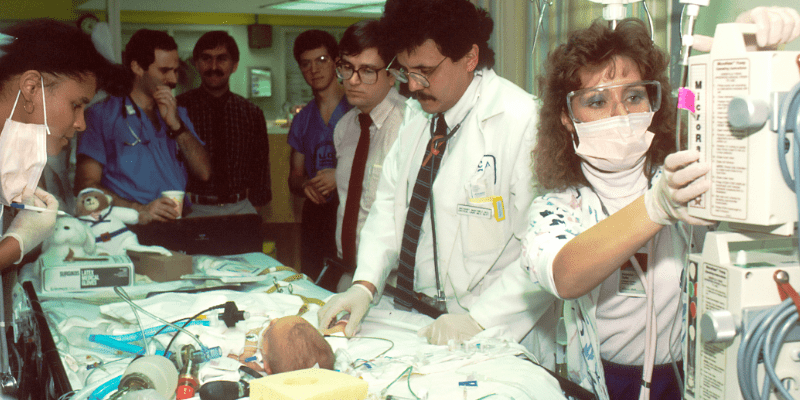In the rapidly evolving landscape of healthcare, the integration of big data analytics has ushered in a new era of patient care. Gone are the days when medical decisions relied solely on intuition and experience. Big data analytics has emerged as a transformative force, with the potential to reshape the way we diagnose, treat, and prevent diseases. In this article, we will explore the profound impact of big data analytics on healthcare, examining how it can enhance patient outcomes, streamline operations, and ultimately save lives. Join us on this exciting journey through the cutting-edge technology that is revolutionizing healthcare, as we unlock its full potential together.
Introduction to Big Data Analytics in Healthcare
Big data analytics is a rapidly advancing field poised to revolutionize healthcare. It leverages advanced technology and techniques to analyze vast and complex datasets, offering valuable insights for informed decision-making and improved patient care.
In recent years, the healthcare industry has witnessed an explosion of data from sources like electronic health records (EHRs), medical imaging, wearable devices, and social media platforms. This deluge of data, referred to as big data, presents both challenges and opportunities for healthcare.
Traditionally, healthcare providers relied on small datasets for analysis and decision-making. However, the emergence of big data analytics tools now enables the processing and real-time analysis of massive volumes of structured and unstructured data. This comprehensive data analysis allows for a deeper understanding of patient populations, diseases, treatments, outcomes, and broader healthcare trends.
The potential benefits of harnessing big data analytics in healthcare are substantial. It can enhance clinical outcomes by identifying high-risk patients earlier and tailoring personalized treatment plans. Additionally, it can optimize operational efficiency by streamlining processes such as appointment scheduling and inventory management.
Understanding the Role of Data in Healthcare
In our modern digital era, big data analytics has reshaped various industries, including healthcare. The healthcare field is generating an ever-expanding trove of data, underscoring the critical importance of data in providing high-quality patient care.
Healthcare data encompasses a wide array of health-related information, including medical records, lab results, demographic data, insurance claims, and patient feedback. These data sources span electronic health records (EHRs), medical devices, wearable technology, and even social media.
- Collecting vast data enhances healthcare insights for better patient care. Advanced analytics tools help analyze data for treatment decisions and resource allocation.
- Big data analytics improves diagnostic accuracy by considering medical history, symptoms, and tests, saving time and reducing errors.
- Data analytics enhances healthcare efficiency by identifying bottlenecks and inefficiencies in patient flow, resource use, and wait times.
This empowers them to make data-driven decisions for workflow optimization and an improved overall patient experience.
Data plays a pivotal role in medical research and development as well. Researchers can leverage large datasets to uncover correlations between different health conditions, treatment outcomes, and genetic factors. This exploration can lead to the discovery of novel treatments and advances in medical science.
How Big Data Analytics Transforms Patient Care
Big data analytics is fundamentally reshaping the healthcare landscape, particularly in the realm of patient care. Armed with advanced technology and robust analytical tools, healthcare providers can now access and analyze vast repositories of health-related data as never before. This wealth of information presents new opportunities for improving patient outcomes, tailoring treatment plans, and making well-informed decisions.
A pivotal role played by big data analytics in transforming patient care is predictive modeling. By mining extensive historical patient data, including medical records, lab results, and lifestyle factors, healthcare providers can identify patterns and trends that may predict future health issues or individual patient risks. This proactive approach empowers physicians to intervene early with targeted measures or preventive actions, enhancing patient outcomes.
Real-life Examples of Successful Big Data Analytics Implementation in Healthcare
Big data analytics has made significant inroads into the healthcare industry, ushering in transformative changes in patient care. Below, we explore real-world instances of successful big data analytics implementation in healthcare:
Predictive Analytics for Disease Early Detection: Blue Cross Blue Shield (BCBS) utilized predictive analytics to identify individuals at risk of developing type 2 diabetes. By analyzing medical claims and demographic data, BCBS achieved a remarkable 97% accuracy in predicting which patients would develop diabetes within a year. This allowed for early interventions and preventive care, ultimately leading to improved health outcomes.
Real-time Monitoring for Critical Care: The University of Iowa Hospitals and Clinics implemented real-time monitoring systems that continuously collect vital signs data, such as heart rate, blood pressure, and oxygen levels, from various devices. These data are analyzed using algorithms to identify patterns and alert physicians to abnormalities or potential risks. This innovation has resulted in faster response times and better patient outcomes in critical care settings.
Personalized Treatment Plans: Mayo Clinic harnessed big data analytics to identify patterns in patient data and create a risk score for heart disease. This enabled the development of personalized prevention plans for at-risk patients, leading to a remarkable 40% reduction in cardiac events.
Fraud Detection: Big data analytics aids in detecting and preventing healthcare fraud. Companies like Optum analyze claims data from diverse sources to identify potentially fraudulent activities, saving millions of dollars by preventing fraudulent claims.
Population Health Management: Mount Sinai Health System and Sema4 have partnered to leverage big data analytics for population health management. By analyzing patient genomic and clinical data, they gain insights into diseases and improve diagnosis and treatment options.
conclusion
Big data analytics is revolutionizing healthcare by providing insights that boost patient care, cut costs, and enhance efficiency. While challenges and limitations exist, the responsible utilization of this technology holds immense promise for the future of healthcare.

































